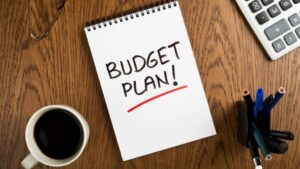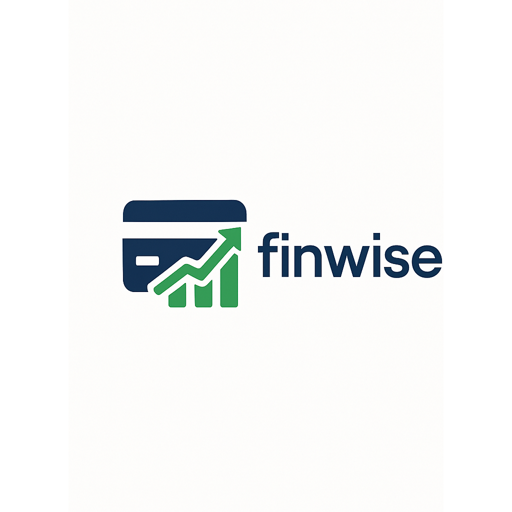How to Create a Budget That Actually Works in 2025
To achieve financial success in today’s economy, you have to take action, take them every day, and begin today.

Budgeting can be a scary task, especially in a year like 2025, where inflation rates, high interest rates and economic uncertainty are in play and bogging down everyday decision making. But budgeting is one of the most effective tools you have to take control of your finances and minimize stress.
In this guide, we’ll help you create a quality budget that’s based on reality — one that’s flexible and effective, a budget that will work for you and not the other way around. If you’re working to get yourself out of credit card debt, save for a house, or just stop living paycheck to paycheck, this guide can help you construct a budget that really works.
Know Your ‘Why’ Before You Budget
Before you dive into strategy, it’s good to get a clearer sense of why you want to budget. Do you want to save for a vacation, to pay off debt or to get ready for retirement? Your “why” makes your budget. When the going gets tough, it’s not easy to stick with a financial plan if you don’t have a compelling reason.
List out your top three financial goals. These could include:
Eliminating credit card debt of $5,000
Putting aside $300 a month for a home down payment
Developing a $1,000 emergency fund within six months
Your budget should be designed to help you get what you want — and when it’s built around your goals, you are more likely to stick to it.
“Our spending was all over the place,” said Ms. Frost, who along with her husband recently completed a worksheet that identified what they’d spent in the last year.
They guess how much they spend — one of the most significant reasons budgets don’t work. In 2025, in the era of contactless payments, BNPL (Buy Now, Pay Later) and subscription services, it’s increasingly easy to lose track of where your money is really going.
For a month, keep track of every dollar you spend. Use budgeting apps like:
YNAB (You Need A Budget)
Mint
Rocket Money
Spreadsheets (if you still want to track things manually)
Divide your expenses into categories:
Housing (rent/mortgage, utilities)
Transportation (gas, mass transit)
Food (groceries, dining out)
Debt payments
Subscriptions
Entertainment
Miscellaneous
Then, once you have a realistic handle on your spending, you can take steps to change it with purpose.
Use the 50/30/20 Budgeting Rule as a Starting Place
So, the 50/30/20 rule is still a good budgeting benchmark through 2025, with possible modifications depending on your income and location.
50% to needs — rent, groceries, insurance, transportation priorities
30% is destined for wants — eating out, travel, entertainment
20% is for savings and debt payoff
In a high-cost area or when confronting serious debt, you might flip this rule to a 60/20/20 or 70/15/15 distribution.
And after all, your budget is a reflection of your life. If your childcare costs are higher and your entertainment dollars lower, so be it. The trick is to be both truthful and adaptable.
Automate Where You Can
Automation will be your best budget buddy in 2025. When you automate your finances, you mitigate the temptation to spend on impulse and you keep yourself on the right path.
Consider automating:
Savings category transfers (for example, $200 every payday to a high-yield savings account)
Credit card payments (minimum, at least, but ideally more)
Repeated bills to be erased from late fees
Most banking apps these days are easy to automate, and some offer overspending alerts or even recommendations to keep you within your budget.
Prepare for Variable Expenses
Gig work, remote work and side hustles are more prevalent today than ever in 2025, meaning erratic income is part of a lot of people’s everyday reality. Expenses are the same — you have a budget that covers emergency car repairs, medical bills or even quarterly tax payments.
How to handle these ups and downs:
Have a cushion in your checking account (1–2 months of expenses) if possible
Budget for them using sinking funds (gifts, car maintenance, vacations)
Plan from your lowest earning month if your pay is variable
This cushion stops you from blowing your whole budget out of the water when the unexpected strikes.
What Consumers Can Do Keep Ahead
Given these challenges, here are some things consumers can do to defend themselves:
Budget realistically: Keep close tabs on your income and spending. Figure out what to cut back on and make sure you can cover minimum payments so that you don’t end up falling behind.
Pay more than the minimum: Whenever possible, paying more than the amount due cuts interest costs and decreases balances more quickly.
Try a balance transfer: Some credit cards have 0% APR balance transfer offers that last 12–18 months. This can be a reprieve for people with good credit to become debt-free while they pay it off without interest.
Evade new debt: Pause and process before taking on new debt, especially high-interest loans or new credit cards — unless you must.
Get credit counseling: Save this option for last, if possible: Nonprofit credit counseling organizations have been known to develop credit management plans tailor-made to your financial situation, which can include lower interest rates and waived fees from lenders.
Strategic Credit Card Use
Credit cards can either help or hinder budgeting. Properly used, they offer cash back, free travel and protection as a consumer. Handled badly, they result in financial debt and stress.
Here’s how you can use them to your advantage:
Never borrow more than you can pay back in full, monthly
Schedule reminders or use autopay to avoid interest
Spend with cards by spending category (groceries, gas, dining to name a few)
Don’t get in the habit of using a credit card to finance money shortfalls. Rather, think of them as a supplement to your financial plan — not a patch for it
Review and Adjust Monthly
Your budget is not etched in stone. Life shifts — so should your budget. Make the following a habit on a monthly basis:
What worked well?
What categories went over?
Were you able to meet your savings goals?
A speedy 30-minute checkup once a month can help you notice trends, build accuracy and keep your financial goals top of mind.
Some budget trackers are even using A.I. to recommend changes based on your past behavior as soon as 2025. Use tech tools that help to make these evaluations easier and more illuminating.
Make Your Spouse or Family Part of It
If you are sharing finances with a partner or have a family to take care of, then budgeting is a joint exercise. Plan a monthly “money date” to talk about expenses, goals and course corrections.
Transparency is conflict prevention, alignment and a vision for both.
Pro tip: With shared budgeting apps or digital envelopes, both partners can see progress and contribute equally.
Make It Fun (Yes, Really)
It doesn’t have to be boring or limiting. Done correctly, it allows you to spend money without guilt.
Here are a few ways to make them enjoyable:
Start a “fun fund” for unapologetic spending
Mark your small victories (such as eliminating a credit card)
Establish savings goals that are visual (like a progress bar or chart)
You want to frame budgeting as a form of care and future planning, not punishment.
Don’t Aim For Perfect—Aim For Progress
And finally, remember that there’s no such thing as a perfect budget. You will have months when you spend too much, emergencies that will knock you off course, or unforeseen opportunities that take a little flexibility.
That’s okay.
The aim is progress, not perfection. Keep grinding, keep learning, and know this: It takes time and consistency to build that strong financial foundation.
Final Thoughts
Budget more than ever matters in 2025. Anyone with the proper attitude, weapons and plan can make a budget that not only functions — but empowers. Whether you make six figures a year or you are living on a modest income range, a good budget is like a telescope: If you use it, it will help you clearly see where your money is going, since working with a budget can reduce anxiety, and getting on the same page with your money can put you further down the path toward reaching your financial goals.
Start today, stick to it, and trust the process. I think your future self will thank you.
Our Post

Mastering Dividend Growth Investing: Your Path to Lasting Financial Freedom

Master Your Money: The Ultimate Blueprint for Financial Freedom


